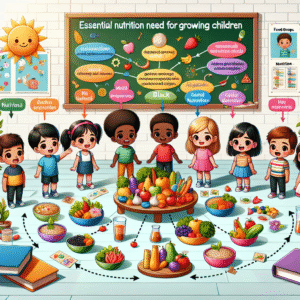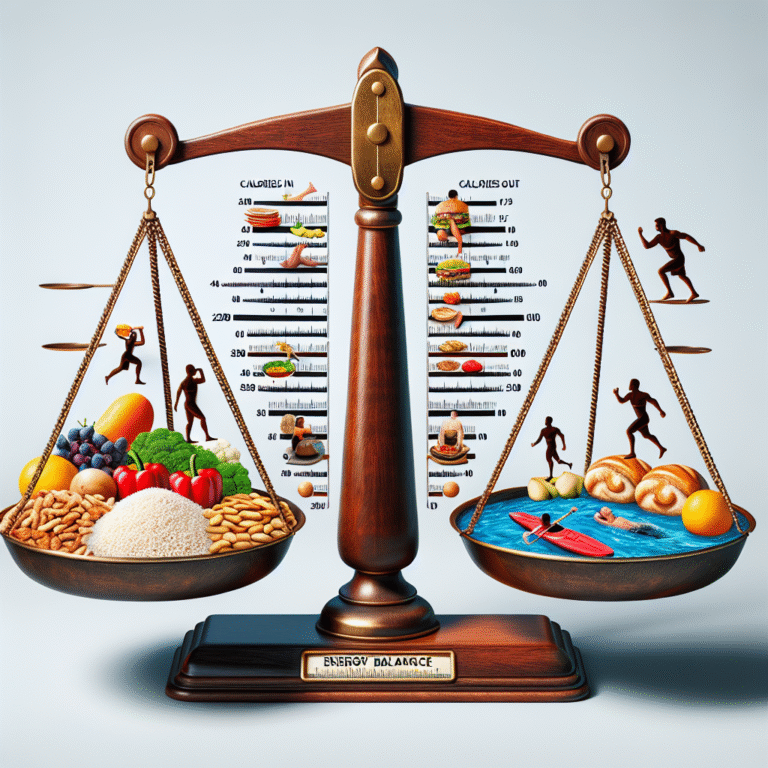Essential Nutrition Requirements for Growing Children
- Understanding Children’s Nutrition Requirements
- The Building Blocks of Nutrition
- Carbohydrates
- Proteins
- Fats
- Key Micronutrients
- Vitamins
- Minerals
- Hydration Matters
- Portion Sizes and Balance
- Meal Planning Tips
- Common Nutritional Challenges
- Conclusion
Understanding Children’s Nutrition Requirements

Proper nutrition during childhood is crucial for healthy development, growth, and overall well-being. As children go through various stages of growth, their nutritional needs evolve, making it essential for caregivers and parents to provide balanced meals that meet these changing requirements.
The Building Blocks of Nutrition
Children require a variety of nutrients to support their physical and cognitive development. These include macronutrients—carbohydrates, proteins, and fats—as well as essential micronutrients such as vitamins and minerals.
Carbohydrates
Carbohydrates are the primary source of energy for children. They should comprise a significant portion of a child’s diet, primarily from whole grains, fruits, and vegetables. Avoiding excessive consumption of refined sugars is crucial to prevent energy spikes and crashes.
Proteins
Proteins are vital for growth and muscle repair. Children should have a mix of animal-based and plant-based proteins in their diets. Sources include lean meats, fish, dairy, beans, nuts, and legumes. It’s important to tailor protein intake based on individual dietary needs and restrictions.
Fats
Healthy fats are necessary for brain development and overall health. Encourage the intake of unsaturated fats from sources like avocados, nuts, seeds, and olive oil, while limiting saturated and trans fats found in processed foods.
Key Micronutrients
Vitamins
Vitamins play a vital role in supporting various bodily functions. For example, vitamin D is essential for bone health, while vitamin A supports vision and immune function. Incorporating a variety of fruits and vegetables can help ensure adequate vitamin intake.
Minerals
Minerals such as calcium, iron, and zinc are crucial for children’s health. Calcium supports bone strength, while iron is vital for oxygen transport in the blood. Dairy products, leafy greens, and fortified foods can help meet these mineral needs.
Hydration Matters
Adequate hydration is often overlooked when discussing children’s nutritional requirements. Water is essential for digestion, temperature regulation, and metabolic processes. Encourage children to drink water regularly and provide healthy options like fruit-infused water or herbal teas.
Portion Sizes and Balance
Understanding appropriate portion sizes is fundamental for ensuring children receive the right nutrition without overeating. The MyPlate guideline can serve as a helpful tool, illustrating how to fill plates with a balanced mix of proteins, grains, fruits, and vegetables.
Meal Planning Tips
Variety is Key: Offer a wide range of foods to expose children to different tastes and nutrients.
Involve Children: Encourage children to participate in meal planning and preparation. This not only teaches valuable skills but also promotes interest in healthy eating.
Healthy Snacks: Provide nutritious snack options such as yogurt, fruits, and whole-grain crackers to prevent unhealthy eating habits.
Common Nutritional Challenges
Children may encounter various challenges when it comes to nutrition, including picky eating, food allergies, and cultural preferences. Understanding these obstacles can help caregivers offer meals that meet children’s needs without inducing stress around eating.
Conclusion
A well-rounded diet is essential for children’s growth and development. By focusing on providing balanced meals rich in macronutrients and micronutrients, parents and caregivers can foster an environment that promotes healthy eating habits. Encouraging children to develop a positive relationship with food sets the foundation for a lifetime of wellness.



